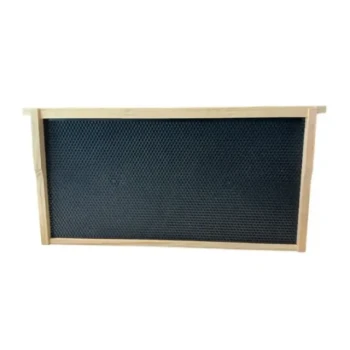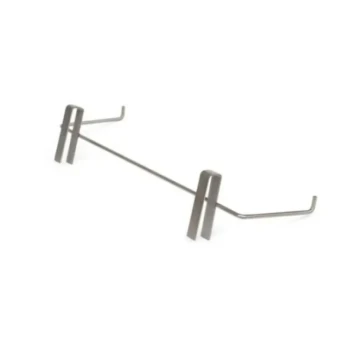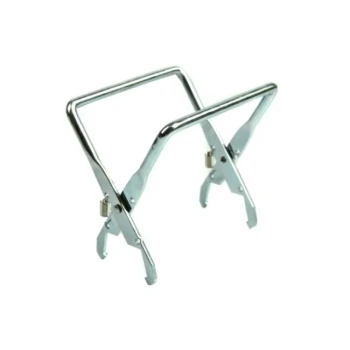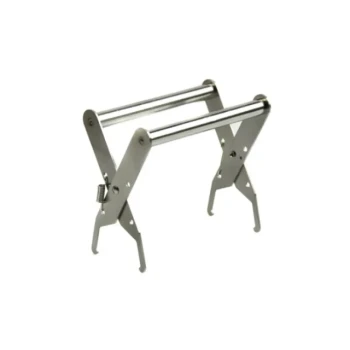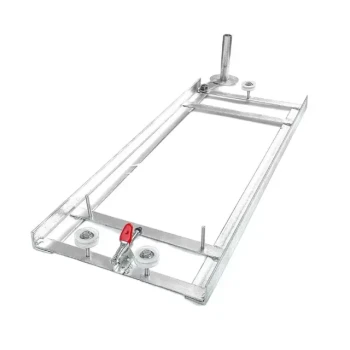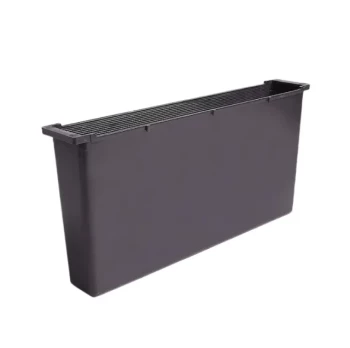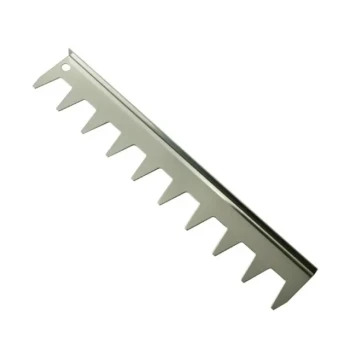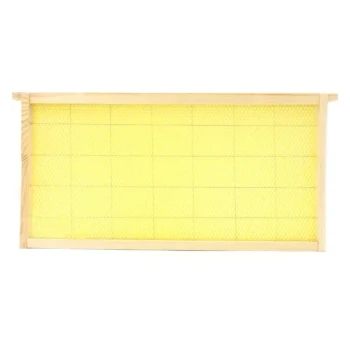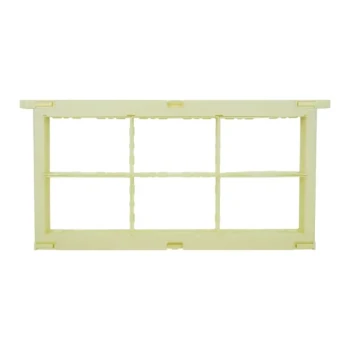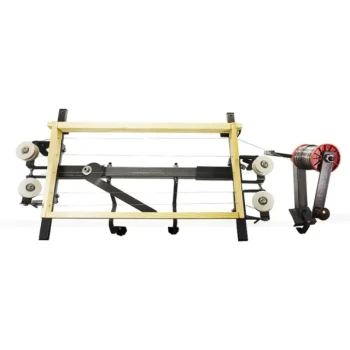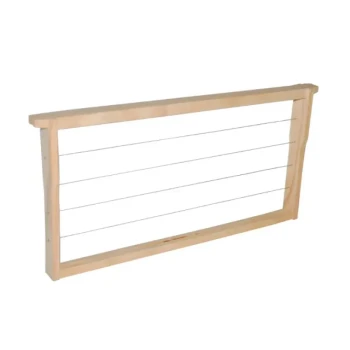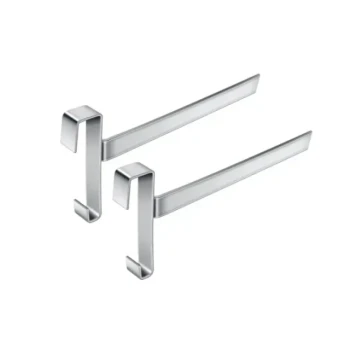In short, bees do not naturally accept bare plastic frames. They are guided by the scent and texture of real beeswax, so for bees to build comb on a plastic frame, it must be coated with a layer of melted wax. Even then, if given a choice, a colony will almost always draw out a natural wax foundation before starting work on a plastic one.
While bees show a clear preference for natural materials, many experienced beekeepers choose plastic frames for their durability, pest resistance, and operational efficiency. The decision is a practical trade-off between accommodating the bees' instincts and optimizing the beekeeper's workflow.
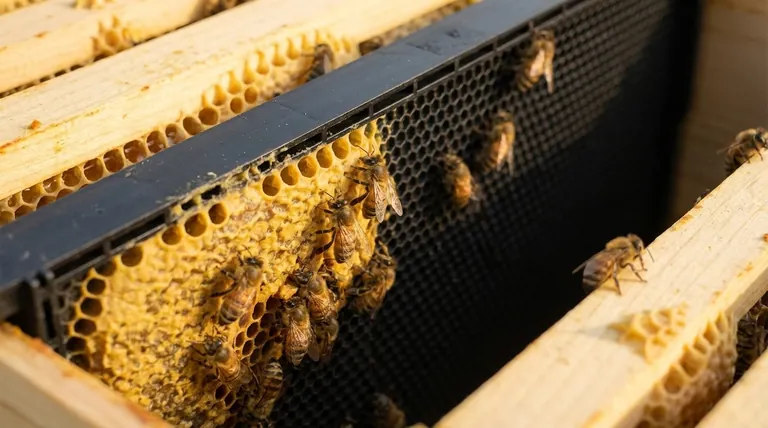
Understanding Bee Preference: Why Wax Is King
Bees have evolved over millions of years to build their homes from wax they produce themselves. This innate preference is not arbitrary; it is tied to their biology and communication.
The Instinct for Wax
Beeswax isn't just a building material; it's a communication medium. It contains pheromones and familiar scents that signal "home" and encourage the colony to work. Plain plastic lacks these crucial biological cues.
The Necessity of a Wax Coating
A coating of real beeswax on a plastic frame acts as a bridge. It provides the scent and texture bees are seeking, essentially tricking them into accepting the plastic base as a viable place to start building. Without this coating, bees will often ignore the frame entirely.
Observed Behavior in the Hive
When a beekeeper installs both a natural wax foundation frame and a wax-coated plastic frame, the bees will consistently begin working on the natural wax first. They will only move to the plastic frame after the more desirable options are filled.
The Beekeeper's Rationale: Why Choose Plastic?
Despite the bees' preference, plastic frames have become a dominant choice in commercial and large-scale beekeeping operations. The reasons are entirely practical and focus on the beekeeper's labor and investment.
Durability and Longevity
Wooden frames are susceptible to rot and damage from pests like wax moths. Plastic frames are impervious to wax moths and generally outlive their wooden counterparts, making them a more durable long-term investment.
Efficiency and Weight
A frame full of honey is heavy. Plastic frames are significantly lighter than wooden ones, reducing physical strain on the beekeeper during inspections and honey harvesting. Their uniform structure also makes them more efficient for uncapping with automated equipment.
Cost-Effectiveness
While the initial price may be comparable, the extended lifespan and reduced need for replacement often make plastic frames more cost-effective over time.
Understanding the Trade-offs
Choosing plastic frames means accepting a specific set of compromises. Being aware of these limitations is critical for successful hive management.
The Risk of Poor Acceptance
If the factory wax coating is too thin or has lost its scent over time, bees may refuse to draw out the comb. This can lead to a "checkerboard" brood pattern or the bees building rogue comb in empty spaces instead of on the frame. Many beekeepers add their own fresh coat of wax to ensure acceptance.
Rigidity and Repair
Wooden frames can be repaired if a part breaks. Plastic frames, if they break, are typically discarded. Furthermore, under extreme heat, such as inside a car or a dark-colored hive in direct sun, plastic frames can warp irreparably.
Lack of Flexibility
Plastic frames come with the foundation—the hexagonal-patterned sheet—molded directly into the frame. This means you cannot switch to a different type of foundation or experiment with foundationless beekeeping, which is possible with standard wooden frames.
Making the Right Choice for Your Apiary
The decision between wood and plastic is not about which is universally "better," but which is better for your specific goals and management style.
- If your primary focus is natural beekeeping and maximum bee comfort: Wooden frames with pure wax foundation remain the superior choice, as they align most closely with the bees' innate behavior.
- If your primary focus is operational efficiency, durability, and pest management: Wax-coated plastic frames offer a clear advantage in terms of labor, longevity, and protecting your investment.
Ultimately, understanding how bees interact with these materials empowers you to make an informed decision that supports the health of your colony and the sustainability of your beekeeping practice.
Summary Table:
| Bee Preference & Beekeeper Rationale | Key Takeaway |
|---|---|
| Bee Behavior | Prefers natural wax for scent and pheromones; plastic requires a wax coating for acceptance. |
| Durability | Plastic frames are impervious to wax moths and generally last longer than wood. |
| Efficiency | Plastic frames are lighter, more uniform, and better suited for large-scale operations. |
| Trade-off | Risk of poor comb acceptance if wax coating is insufficient; plastic frames cannot be repaired if broken. |
Optimize your apiary's efficiency and protect your investment with durable, pest-resistant equipment from HONESTBEE.
Whether you manage a commercial apiary or are a beekeeping equipment distributor, our wholesale-focused operations provide the high-quality, durable plastic frames and beekeeping supplies you need to succeed. We understand the critical balance between bee health and operational efficiency.
Contact HONESTBEE today to discuss your specific needs and discover how our products can enhance the sustainability and profitability of your beekeeping practice.
Visual Guide
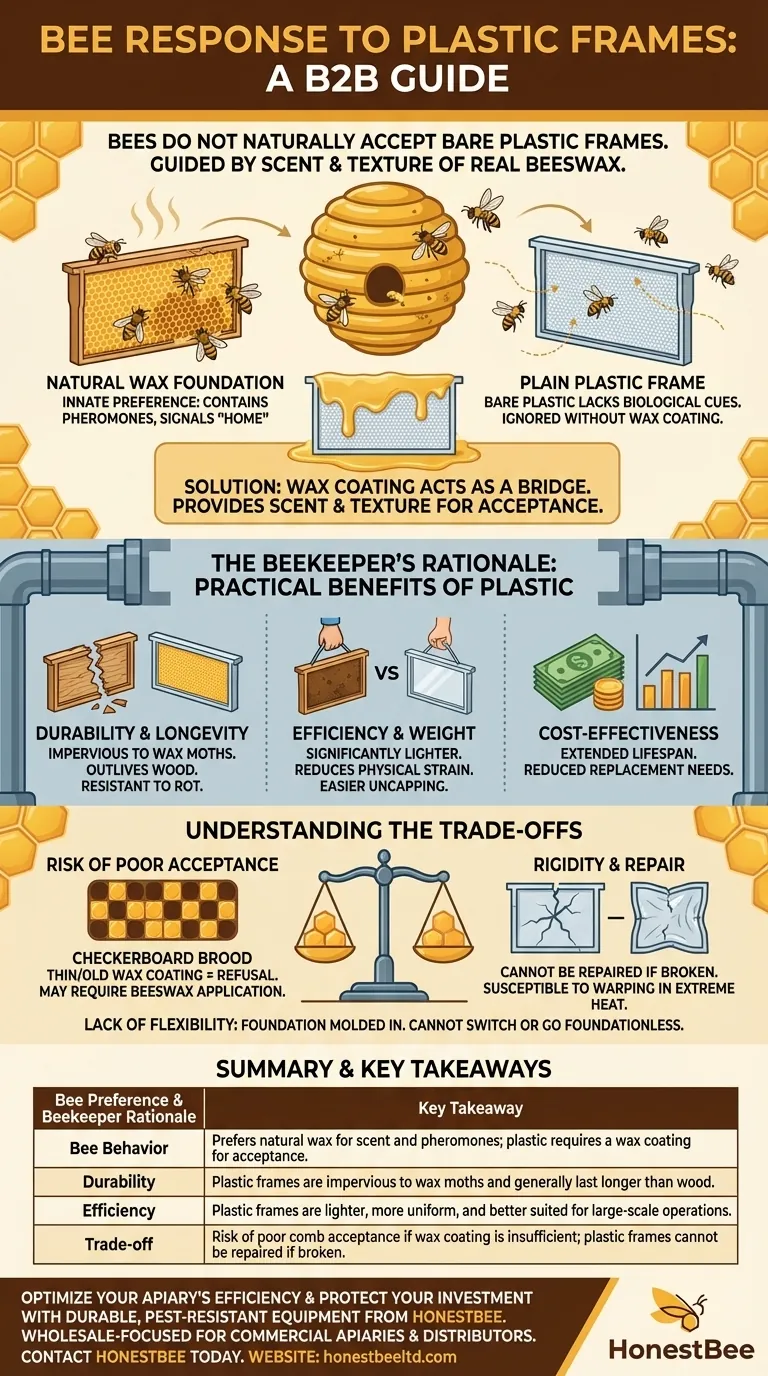
Related Products
- Plastic Bee Frame Beekeeping Hive Frames for Wholesale
- Assembled Wooden Bee Frames with Plastic Foundation for Durability and Convenience by HONESTBEE
- Food Grade Plastic bee Foundation for Bee Frames
- 7 x Auto Bee Flow Hive Frames Plastic Beekeeping Hive Box Supplies
- Heavy-Duty Stainless Steel Clip-On Frame Perch
People Also Ask
- What are the advantages of plastic frames for beehives? Boost Apiary Efficiency & Durability
- What are the mechanical and acoustic characteristics of a one-piece plastic frame and foundation? Strength vs. Sound
- Why are plastic frames popular in commercial beekeeping? Boost Efficiency & Durability at Scale
- Can you boil plastic bee frames? Avoid This Costly Mistake and Protect Your Hive
- Are plastic bee hive frames good? A Guide to Modern Durability vs. Natural Appeal

